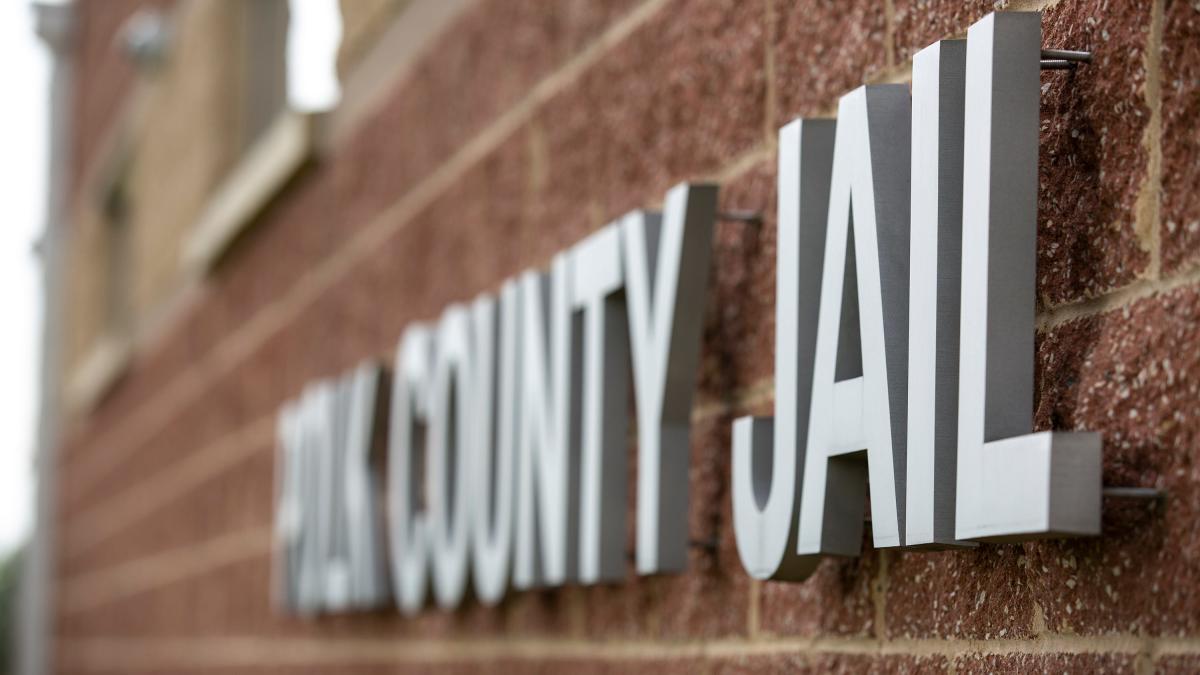Ombudsman Bernardo Granwehr in a report issued Thursday found that several county jails in Iowa, including Polk County’s, have been collecting money from inmates for health care costs before they were convicted and without a court order. The report said that violates an Iowa law on the books since 2006.
County sheriffs are allowed to seek recovery of medical and other costs from inmates only if they are found guilty and after a bill of costs is presented to a court and approved, Granwehr said in a statement.
More: Last lawsuit claiming sex abuse by Polk County Jail doctor settled for $7,500
“We’ve actually had complaints coming in for years,” he told the Des Moines Register. “We decided to move forward with this as a public report to bring attention to the issues and maybe resolve the issue.”
He recommended that all Iowa sheriffs review their practices to ensure they comply with the law.
In addition, he said, he has recommended that the Iowa Department of Corrections propose amendments to an administrative rule that has confused jail officials.
The department acknowledged the issue but has not committed to amend the relevant rule, Granwehr said.
“I hope this report starts a conversation that ultimately leads to consistency in how jails handle inmate health care costs,” he said in the statement.
Law prohibits collecting payment from prisoners before conviction
The law Granwehr cites in the report says that a county sheriff “may charge a prisoner who is eighteen years of age or older and who has been convicted of a criminal offense or sentenced for contempt of court for violation of a domestic abuse order for the actual administrative costs relating to the arrest and booking of that prisoner, for room and board provided to the prisoner while in the custody of the county sheriff or municipality, and for anymedical aid provided to the prisoner. … If a prisoner who has been convicted of a criminal offense or sentenced for contempt of court for violation of a domestic abuse order fails to pay for the administrative costs, the room and board, or medical aid, the sheriff or municipality may file a reimbursement claim with the district court. …”
Granwehr said his office put out a special report in 2016 to draw jails’ attention to the requirement, but it apparently went largely unheeded.
From 2022: A tooth abscess led to a life-threatening infection. This Polk County jail inmate’s mother wants to know why
The new report in particular focused on the Scott, Wapello, Mills and O’Brien county jails, and identified eight other counties that it said were at least partially out of compliance with the law. Among them, it said Polk County acknowledged charging inmates for medical care before they were convicted.
Granwehr said none of the four jails at the center of the report disagreed with his interpretation of the law and that three of the four, excluding Wapello, already have committed to or made changes to their practices.
He said a source of the problems has been that the Iowa Administrative Code, which also addresses reimbursement of jails for medical services and room and board, was never updated to reflect the 2006 change in the law. He said he has urged the Department of Corrections to rewrite the code section.
“We’ve had constructive dialogue with the department and they understand what the problem is,” Granwehr said. “We just want to encourage them to take the step of amending the rule that’s causing confusion. I’m optimistic they will follow through, and if they do this problem will go away statewide.”
The Department of Corrections did not immediately respond to a request for comment.
ACLU says years of noncompliance with law ‘shocking but not surprising’
Iowa officials of the American Civil Liberties Union said they agree with Granwehr’s conclusions and recommendations. The group’s National Prison Project seeks to identify and prevent abuses of prisoners’ rights.
“Sheriffs and jail personnel who decline to provide basic, necessary medical care for inmates prior to conviction are in the wrong under Iowa law,” ACLU of Iowa Policy Director Pete McRoberts said in an emailed statement.
With regard to the provision of medical services in jails, Iowa law was changed nearly 20 years ago to require a conviction prior to assessing fees to inmates, McRoberts said.
“Almost two decades later, it is shocking but not surprising to see that local governments are still not following state law,” he said.
More: Should Polk County help pay for an offender release program the state took over? It says no.
The ACLU of Iowa will seek to ensure that all Iowa sheriffs abide by statutory and constitutional requirements regarding the well-being of jail inmates, he said.
“We are, however, disturbed that the state Department of Corrections continues to decline to use its authority to resolve any misapplication of Iowa law regarding provision of health care in county jails,” he said.
ACLU of Iowa officials are concerned that the department was formally asked to assist on the issue but has declined to make any changes, he said.
“The department has had 18 years to get this right,” McRoberts said. “Its many directors over the years have known or should have known of this issue. At this time, it is beyond doubt that department management is well aware of the law.
“If department leadership continues to stonewall and enable further skirting of state law, then we urge the Iowa Legislature to use its oversight and statutory prerogatives to force a course correction,” he said.
José Mendiola is a breaking news reporter for the Register. Reach him at jmendiola@dmreg.com.
This article originally appeared on Des Moines Register: Report: Iowa county jails are violating law on inmate medical billing
